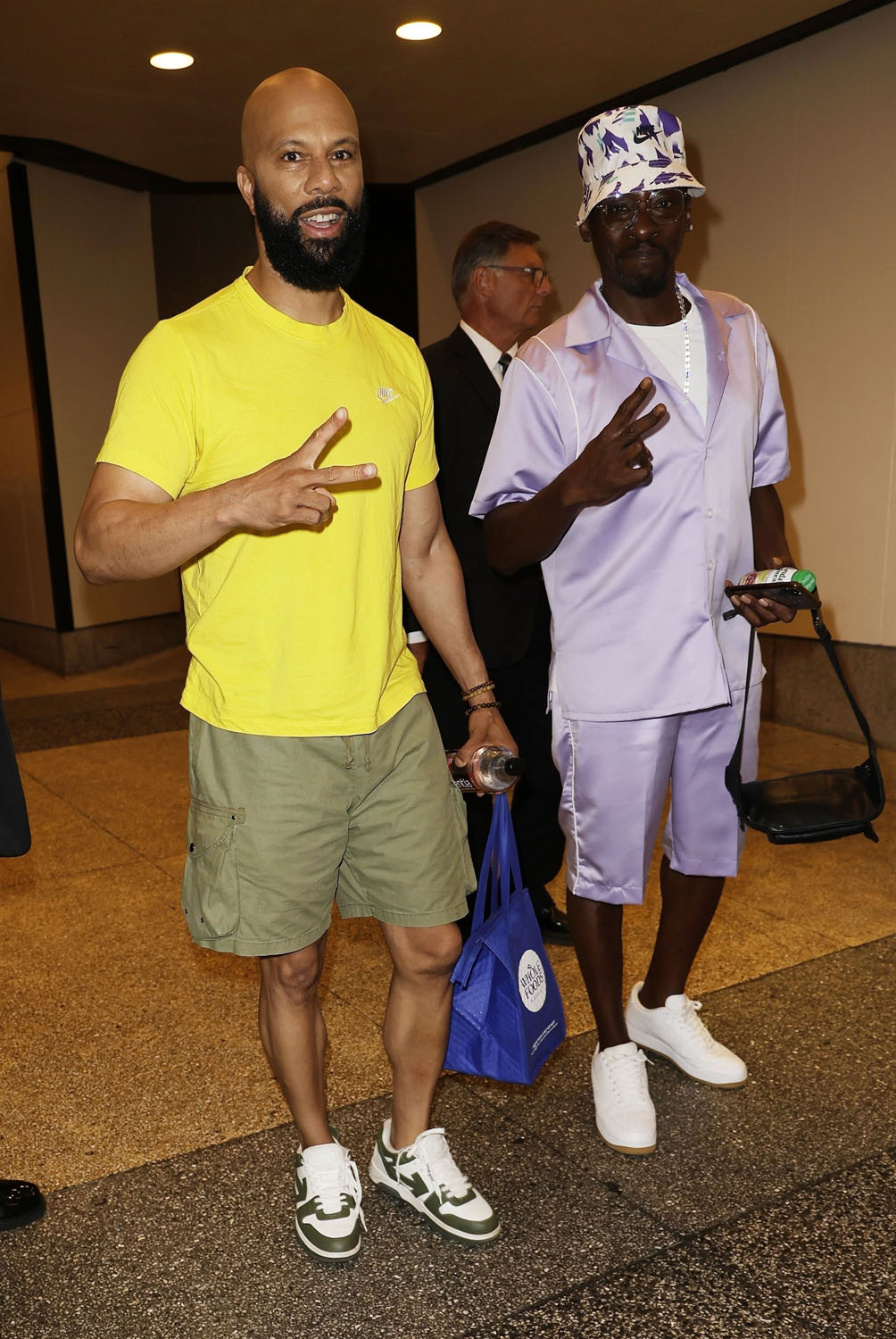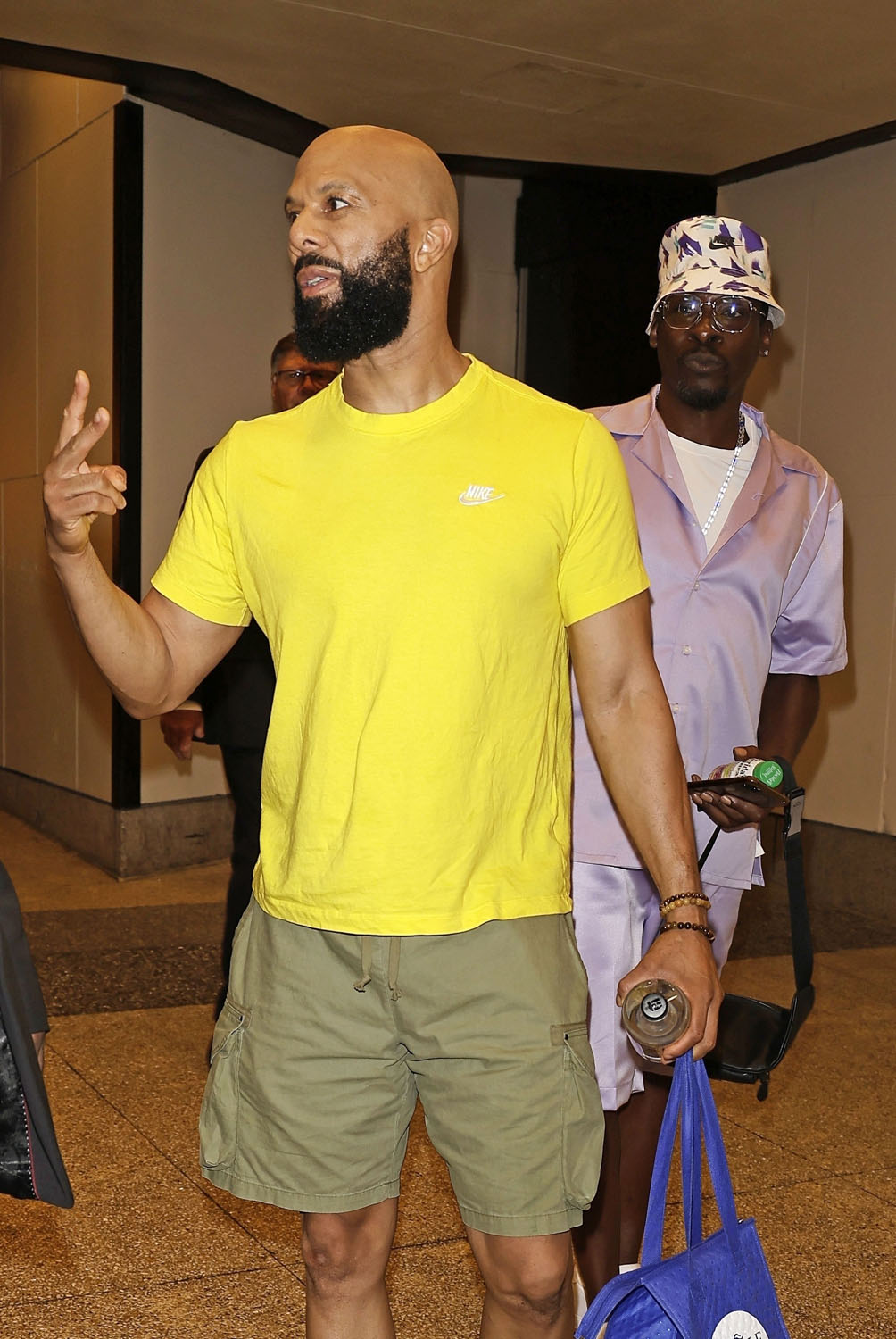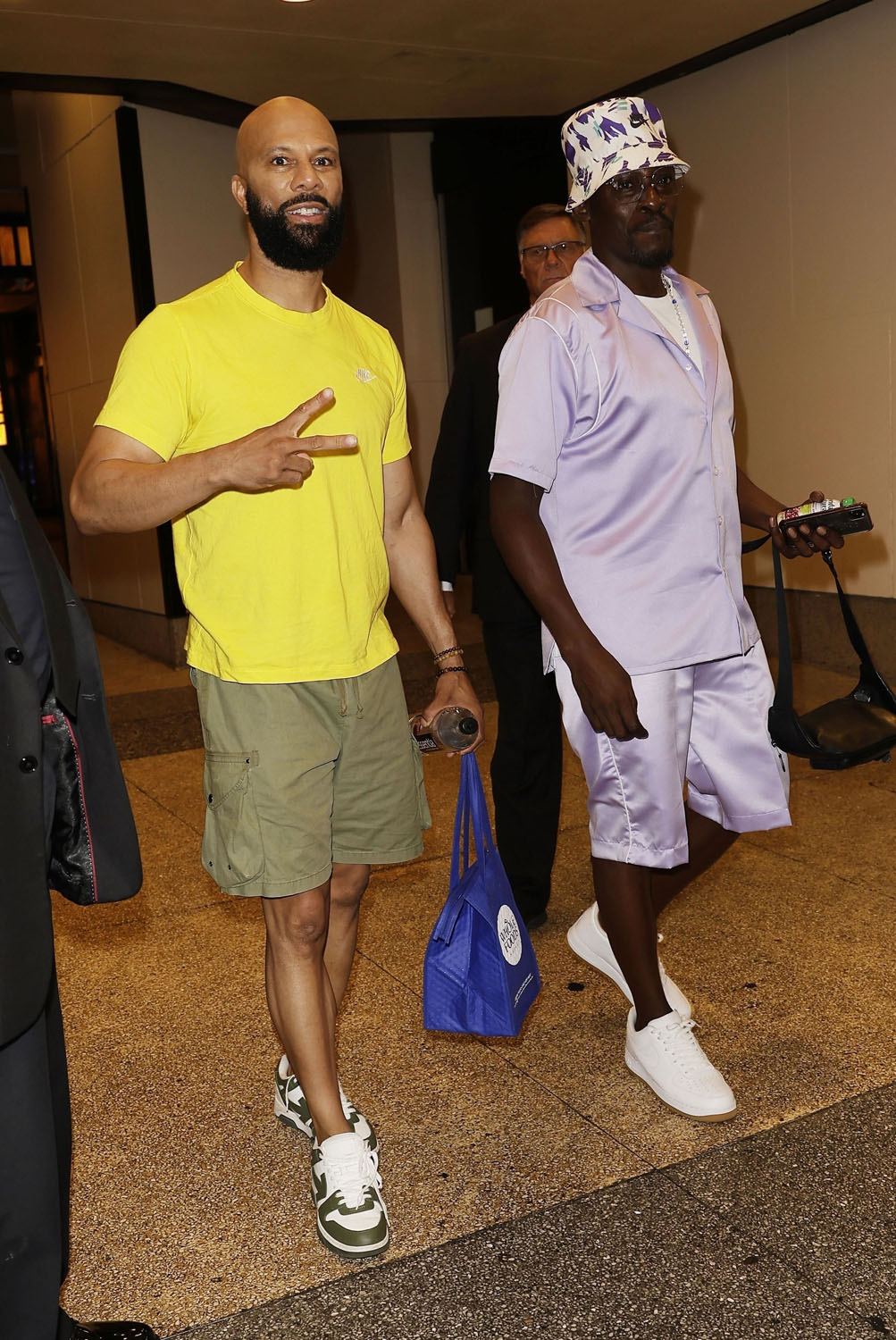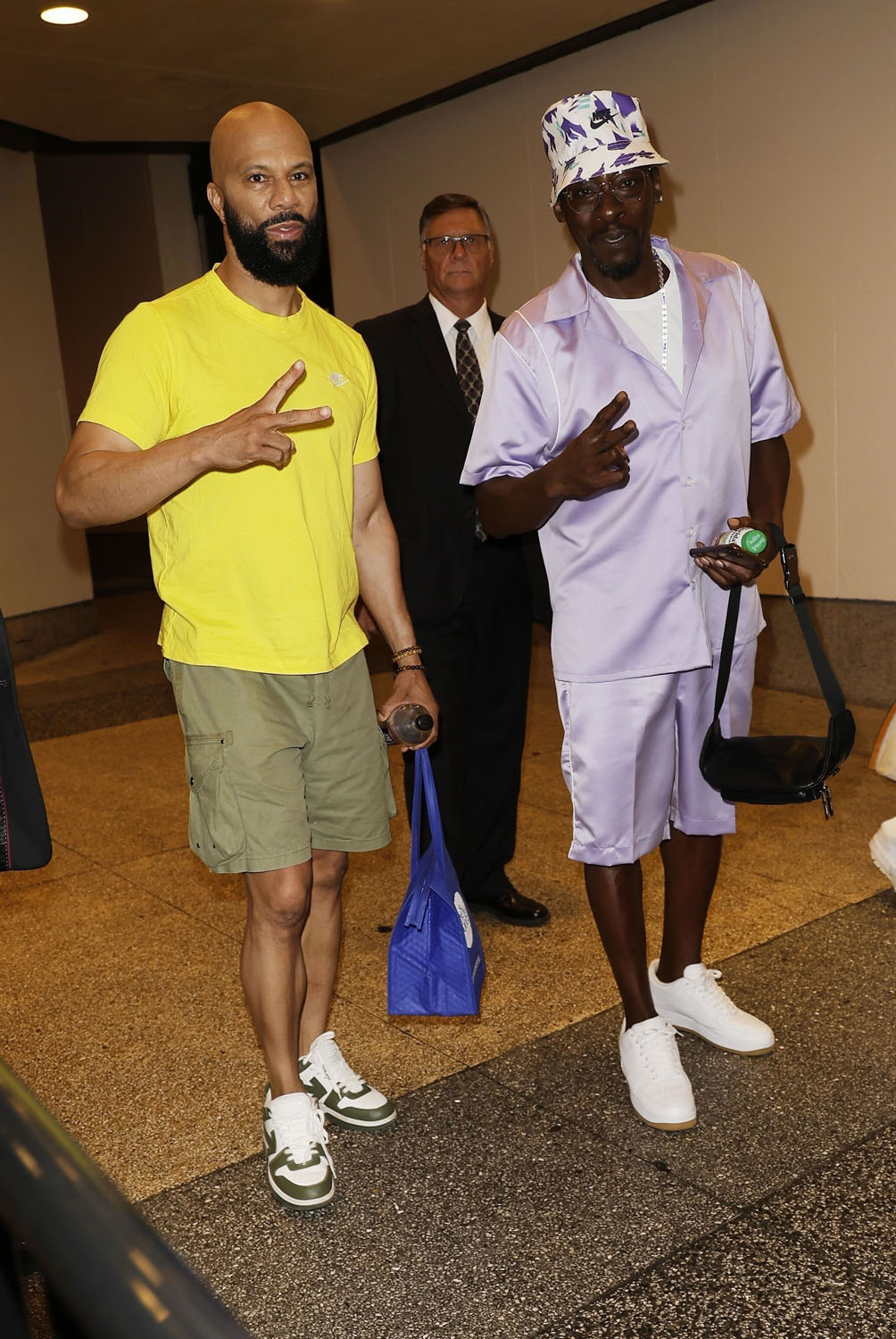In defense of Common


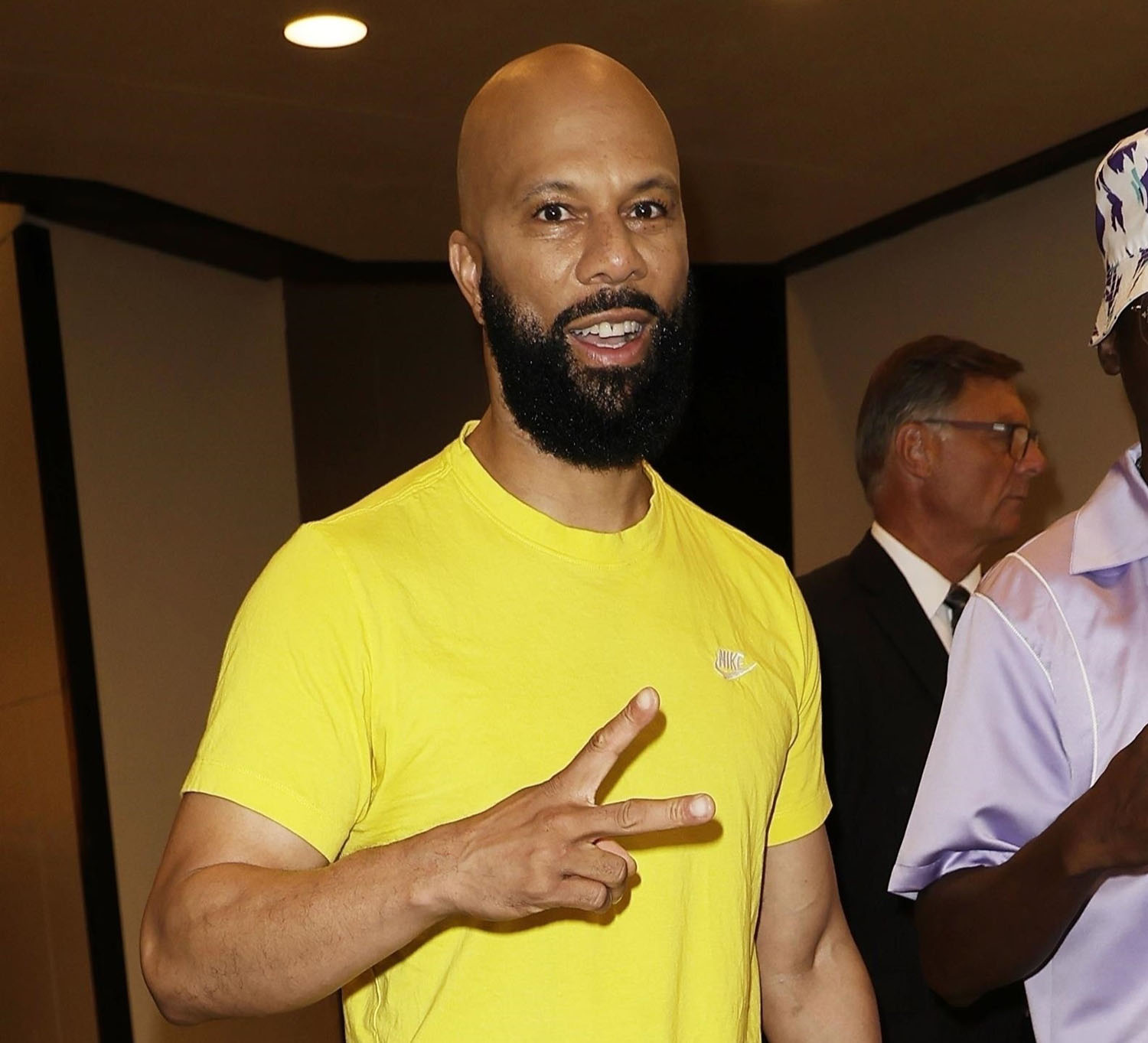
Common is hinting at a willingness to tie the knot. During the press tour for his most recent album, The Auditorium, Vol. 1, he’s been speaking candidly about his relationship with Jennifer Hudson and whether they will marry.
In conversation with The Breakfast Club, he had this to say:
"If I'm gonna get married, it's to her. Simple as that. This is definitely, with all due respect to the women I've dated, it's all love, but this is a really healthy and beautiful relationship.”
Over the last several years, Common has been linked to Taraji P. Henson, Serena Williams, and Tiffany Haddish. And while none of those relationships worked out, his exes seem to have fairly pleasant things to say about him.
Earlier this year, Tiffany Haddish reflected on her relationship with Common. While appearing on the Making Space with Hoda Kotb podcast, she looked back at her split from him, which she referred to as “weird” and “not mutual”, but praised who he was as a partner at the same time.
“(It was) the healthiest, the funnest relationship I’ve ever had,” she said. “It’s where I felt safest out of all the relationships I’ve ever had.”
And despite it being several years since their breakup in the early 2000s, Taraji also had wonderful things to say about Common, like the fact that their relationship was her “last real long-term relationship”, and that her son was “sad” when the pair split.
Hearing these reflections from the women who’ve known him so intimately, it’s a wonder why so many people (read: strangers on the internet) are so hard on Common. As I wrote here, Jennifer Hudson’s fans did not hold back when it came to their reactions to her soft launching him on her Instagram page back in March of 2023. They expressed both concern and cautious optimism, citing the many women he had dated without those relationships ending in marriage. But do relationships always need to end in marriage in order for them to be considered a success?
Since joining the LG team back in 2022, I’ve truly enjoyed writing about relationships, particularly in a celebrity context. The money, the publicity, the pomp and circumstance of it all is just so intriguing. It’s also a huge opportunity for me to reflect on how we treat public and celebrity couples and the individuals within them.
But this particular situation in which we’re watching in real time Common go from a labelled lothario to a man inching toward really being ready for marriage is by far one of the most fascinating evolutions I’ve seen, for a few reasons. But the main reason this case interests me so much is because Common is flipping the misconceptions we hear so often about Black men on its head – and it still doesn’t seem to be good enough in the court of public opinion.
It’s no secret that there are a lot of misconceptions out there about Black men. They are often assumed to be absent fathers and unfaithful players. And despite the praise that has been given to Common from the women with the most intel, his exes, his name is often getting dragged through the mud.
On YouTube, I found this 20 minute video from a few months ago with unsubstantiated claims about Common cheating on Jennifer. The comments were full of YouTube users calling him everything from an “energy vampire” to a “wolf in sheep’s clothing”. One person even remarked, saying he’s “devastating the lives of beautiful, successful black women!” Parasocial relationships with celebrities strike again.
The thing about that last remark is that famous Black men who opt not to date Black women have repeatedly been ostracized by Black media outlets and their audiences. Whether we’re talking about Seal’s marriage to Heidi Klum, the two white women Alfonso Ribeiro has been tied to, Taye Diggs’s marriage to Idina Menzel, and more recently, Jay Ellis’s marriage to Serbian model Nina Senicar – the chatter has not been pleasant as it pertains to interracial relationships, marriages, and in particular, bloodlines.
We also saw that same unpleasant chatter when Jamie Foxx’s daughter, Corinne, announced her engagement to Joe Hooten, who is white. The comments under the post were so full of racism and vitriol that she had to turn them off.
My point is that while Common has managed to avoid being the subject of attacks by internet trolls by not dating white women, there’s another target on his back by…not dating white women. In opting to date Black women, he’s now being accused of destroying their lives, simply because he’s dated them and not married them. Not only do I find this to be untrue, but it’s also counterintuitive and it strips the very women he’s dated of their agency, by assuming their worlds are turned upside down over a man.
As I’ve written in the past, I have a lot in common with Common. Our relationships with our child’s other parent both ended when our kids were one. Since then, we’ve both dated. A lot. And never outside our race (I tried, it didn’t work). And up until now, we’ve both expressed not quite being the marrying kind. Key words here? Until now.
As he is warming up to the idea of marriage, oddly enough, so am I. If someone were to ask him or me what changed, chances are, we wouldn’t be able to formulate a single answer. But perhaps what we’d likely both attribute it to is time, and the lessons and healing that come with it. Time can change you. Being with the right person can change you. The right kind of love can change you. And to be clear, you can change without settling – which is often the narrative ascribed to people who decide to settle down later on in life.
I’m not in the business of defending men all too often. But Black men face an indescribable amount of pressure, and because that pressure and the narratives we’re seeing in this case are not placed nearly as much on other men like George Clooney or Robert De Niro, who decided to marry or have kids later on in life, I feel the need to provide all of this as context.
When Nelly and Ashanti announced that they were getting back together, which I wrote about here, after his long-term relationship with Chantelle Jackson, whom he never married, he received a lot of criticism for “leading her on”. But had he married her and been unfaithful, or married her and divorced her, the backlash would’ve been swift. Now, he and Ashanti are engaged and she’s pregnant and people are thrilled.
Happy endings don’t just fall from the sky. It takes work. It takes practice. It takes discipline and boundaries and therapy. Lots of therapy. And Common has been open about what he’s learned in therapy in his memoir, Let Love Have The Last Word, and in interviews all the time.
We can’t say we want self-aware Black men if, when they appear in front of us, imperfect and all, we reject and bash them. We can’t say we want Black marriages if, when Black men date Black women we accuse them of devastating the lives of those Black women simply because the relationships don’t end up the way we see fit. And we shouldn’t be projecting so much of what we want for other people anyway, especially if that is not what they want for themselves.
Here's Common at CBS Mornings last week in New York.

